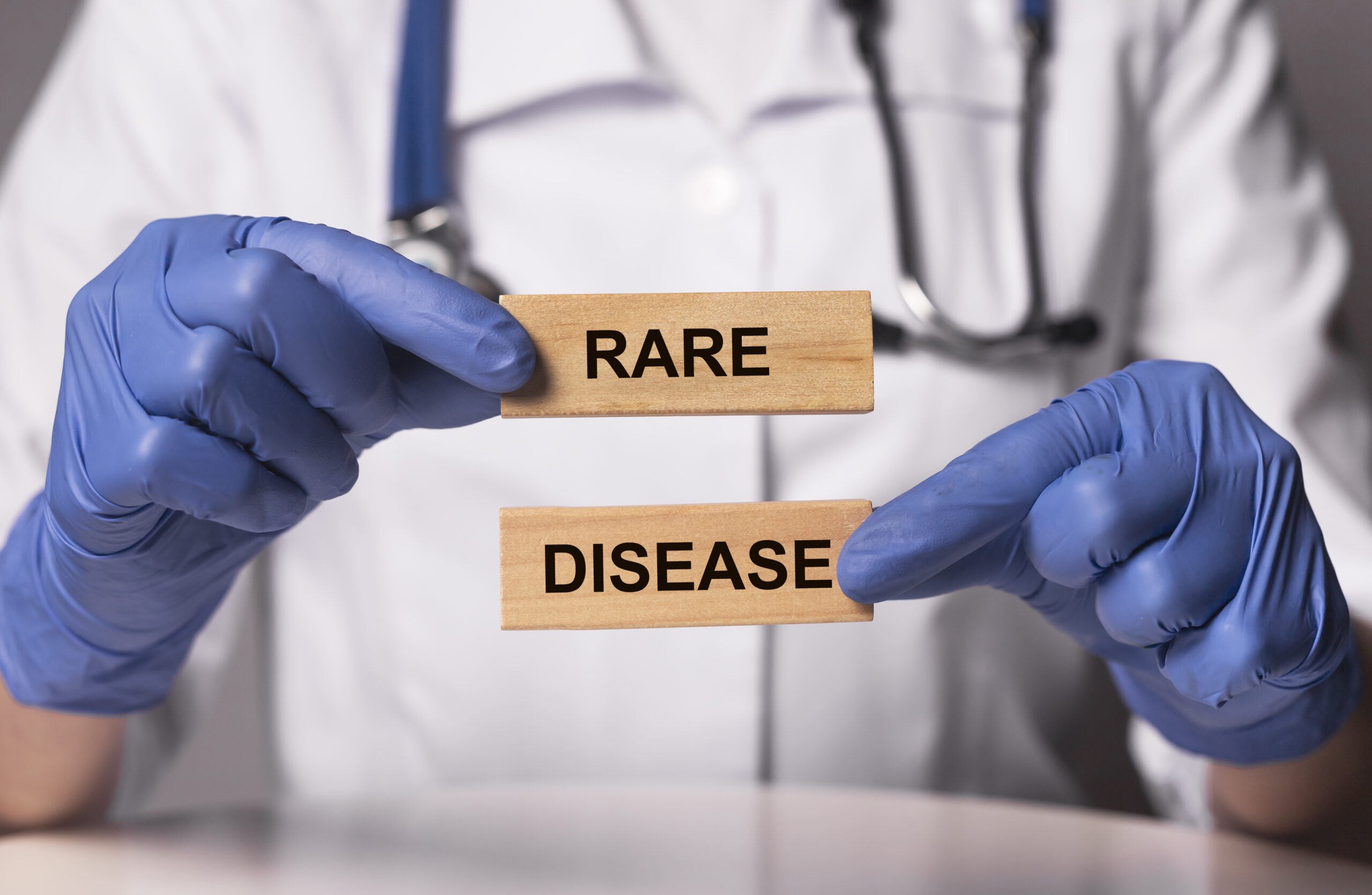Rare disease clinical trials occupy a special place within clinical research, marked by both unique challenges and promising opportunities. The pursuit of treatments for conditions affecting a limited population requires a tailored approach that navigates the hurdles specific to these rare conditions efficiently. Today in this blog, we will try and understand the complexities of these trials, the barriers they pose and the potential they hold for groundbreaking advancements.
Amidst all the complexities, the rare disease clinical trials call for collaborative endeavors, regulatory adaptations, and innovative strategies. The convergence of these challenges and the emerging opportunities pave the way for transformative clinical advancements, offering hope for people impacted by the lesser-known medical conditions.

What are Rare Diseases?
Firstly, let’s understand what rare diseases are. Also called orphan diseases, a rare disease is a condition that affects only just a minute proportion of the people. To put it in perspective, it will affect less than 1 person out of 2000. Some examples of rare diseases include myositis, sickle cell disease, Gaucher disease, and acromegaly.
In USA, a disease or a condition is classified as a rare disease if it affects less than 200,000 people. According to the FDA, more than 30 million people in the US are affected by more than 7000 rare diseases.
What are Rare Disease Clinical Trials?
Rare disease clinical trials are specialized investigations focused on evaluating potential treatments for medical conditions affecting a small segment of the population. These trials assess the safety and effectiveness of new drugs or therapies tailored to address the unique challenges posed by these uncommon diseases. Rare disease clinical trials are different from the regular clinical trials, mainly due to the former’s specific focus on conditions impacting a limited number of individuals.
Recruiting participants for rare disease clinical trials is a challenge in itself. And their design requires meticulous attention to detail for accurate data collection within the small patient pool. These trials represent collaborative efforts aimed at developing life-changing therapies for conditions that often lack adequate attention within clinical research.
What are some challenges in rare disease clinical trials?
- Small Patient Population
- Improper Diagnosis and Awareness
- Regulatory Hurdles
- Data Collection and Endpoint Determination
– Small Patient Population:
One of the major challenges for rare disease clinical trials is the small patient population. As mentioned earlier, rare diseases affect a small number of individuals, and this scarcity makes it incredibly challenging to identify and enroll enough participants to conduct clinical trials. Limited participation can weaken the statistical power needed to draw reliable conclusions about the effectiveness and safety of treatments.
– Diagnosis and Awareness:
Lack of awareness and improper diagnosis is another challenge for rare disease clinical trials. Diagnosing rare diseases is often a complex and lengthy process. Many of these conditions lack specific diagnostic tests or present with symptoms that mimic more common illnesses, leading to wrong or delayed diagnoses. Moreover, the lack of awareness among healthcare providers about these rare conditions can further delay accurate identification and recruitment for clinical trials.
– Regulatory Hurdles:
Regulatory requirements are among the top challenges for rare disease clinical trials. The regulatory processes for drug approval and clinical trials typically follow established protocols. However, for rare diseases, these protocols might not adequately address the unique aspects of these conditions. This can lead to delays in trial startup, increased costs, and uncertainty in meeting regulatory requirements.
– Data Collection and Endpoint Determination:
Determining suitable endpoints for measuring the efficacy of treatments in rare diseases can be challenging due to the irregularity in disease progression among a small number of patients. Additionally, collecting enough data to demonstrate the treatment’s effectiveness within a limited patient pool can be difficult. This makes data collection a tasking challenge in rare disease clinical trials.
Opportunities in Rare Disease Clinical Trials
– Collaborative Efforts:
In a good turn of events, a surge in collaboration has been noticed among researchers, healthcare providers, patient advocacy groups, and pharmaceutical companies to tackle the challenges in rare disease clinical trials. These partnerships facilitate information sharing, pool resources, and foster a better understanding of rare diseases, aiding in quicker diagnosis and more effective trial designs.
– Regulatory Support:
Regulatory bodies have introduced special designations like orphan drug status, offering incentives such as extended market exclusivity and research grants. These incentives encourage life sciences companies to invest in research for rare diseases clinical trials despite the challenges, accelerating drug development and accessibility for affected individuals.
– Innovative Trial Designs:
Innovative trial designs, like adaptive trials that allow for changes during the study based on interim results, and utilizing real-world evidence, have emerged. These approaches enhance the efficiency of rare disease clinical trials, optimize resource utilization, and increase the chances of success in finding effective treatments.
– Patient Engagement:
Patients and their families play a crucial role in rare disease clinical research. Their involvement in trial designs, sharing insights about their experiences, and advocating for their needs ensures that patients are at the heart of the rare disease clinical trials. This active engagement improves recruitment and retention rates while ensuring that treatments meet the specific needs of the affected population.
In conclusion, while challenges persist in conducting rare disease clinical trials, ongoing collaborative efforts, regulatory adaptations, innovative approaches, and increased patient involvement present promising avenues for addressing these challenges and advancing research in this critical area of life sciences. What do you think? Share your opinions in the comments.
At Inductive Quotient Analytics (IQA), we are committed to advancing the field of rare disease clinical trials with our incredible offerings. As an innovative company within the life sciences industry, we have collaborated with many global companies and efficiently handled clinical trials across therapeutics. To know how our specialized services and solutions can aid your clinical trials, write to us at hello@inductivequotient.com.
